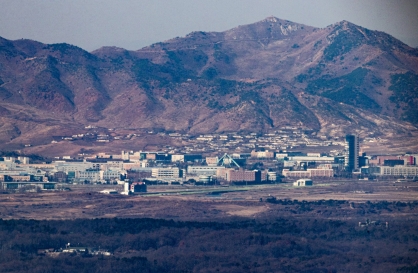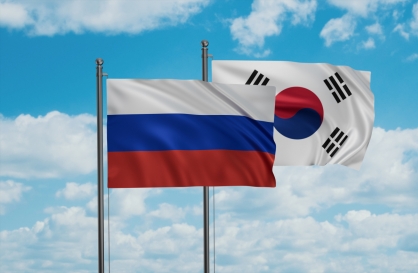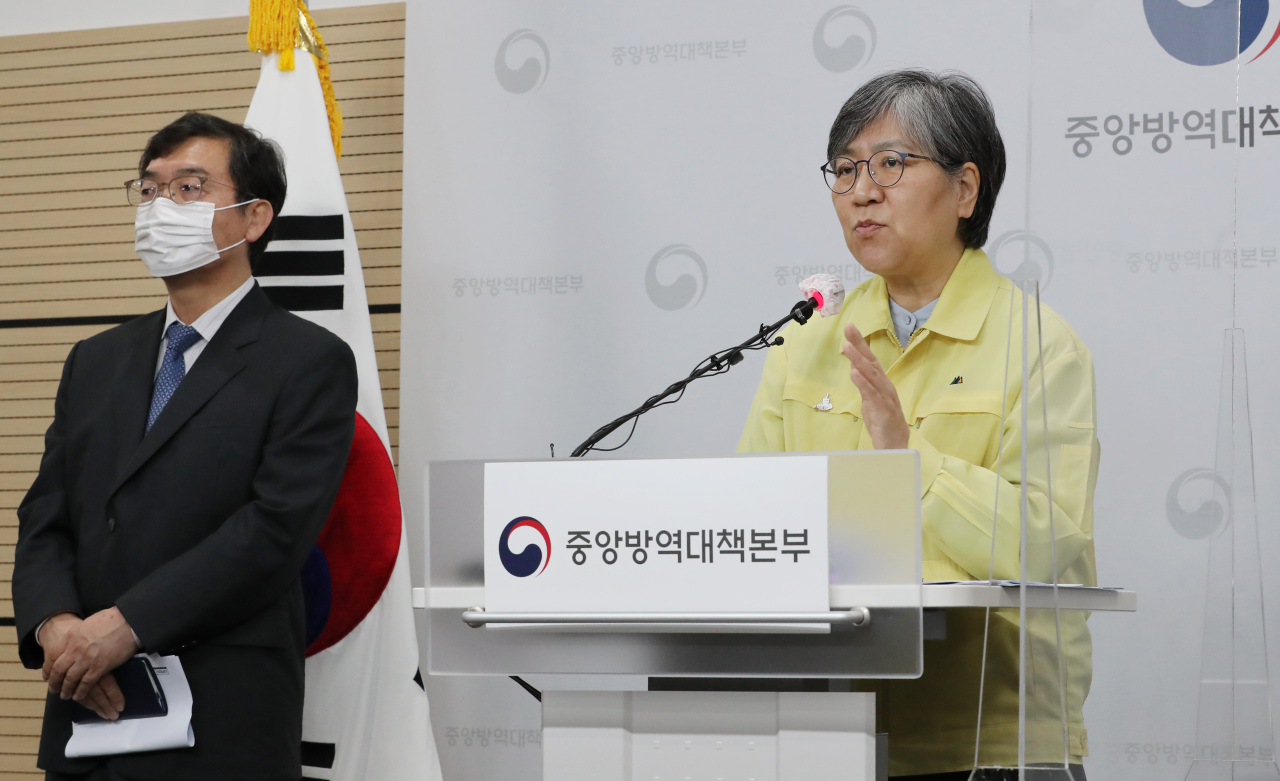 |
Jung Eun-kyeong, the chief of the Korea Disease Control and Prevention Agency, speaks druing the news briefing Tuesday afternoon. (Yonhap) |
South Korean government said Tuesday there were no issues of safety and quality of the batch of flu vaccine exposed to heat fluctuations.
"Considering the degree and duration of heat exposure, the influenza vaccines are not judged to have been affected in terms of safety, stability as well as potency," said Jung Eun-kyeong, the director of the Korea Disease Control and Prevention Agency, during a news briefing.
She said the conclusion was reached after two weeks of joint investigation by the disease control agency and the Ministry of Food and Drug Safety. Some 750 doses were randomly selected from the batch for the testing.
Only some, not all, of the 5.39 million doses of the said vaccines will be retrieved from 1,808 medical facilities across the country, Jung added, without disclosing the exact amount.
Over the course of the transportation, 196 instances of temperature excursion occurred for an average of 88 minutes at a time. For around 7 percent of the known instances, the vaccines have been left in unsafe conditions for as long as over three hours.
Temperatures of exposure varied from room to below degrees Celsius. The recommended range is 2-8 degrees Celsius.
While the government initially said the doses of the mishandled flu vaccine have not been administered, following reports revealed the contrary. At least 2,296 people -- children and elderly included -- had been administered flu shots that have been poorly handled as of Sunday. So far, 12 of the vaccine recipients reported experiencing adverse reactions.
Infectious disease pundit Dr. Kim Woo-joo of Korea University Medical Center in Guro, southern Seoul, said he was against the use of mismanaged vaccines. "There are no credible guidelines in existence for testing vaccines for administration after a cold chain breach," he said.
"Vaccines have to be both safe and effective. After they have been exposed to temperatures outside the recommended ranges, they may not provide protection."
Kim said that proceeding to use the vaccines in question "could leave a potentially dangerous precedent."
"If we make an exception now and overlook the errors, it may convey a message that violations of vaccine management guidelines are OK," he said. "An even more harmful outcome from this negligence is that it may erode people’s confidence in the government vaccination program."
Pulmonologist Dr. Chun Eun-mi of western Seoul’s Ewha University Medical Center said discarding the incorrectly managed vaccines might be "the safer choice," and that even if they were to go to waste, it “may not necessarily be a cause for alarm.”
For people who are not vaccinated against flu, Chun advised strict adherence to face mask wearing, maintaining good hygiene and practicing physical distancing.
By Kim Arin (
arin@heraldcorp.com)

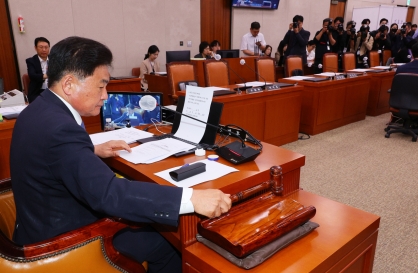
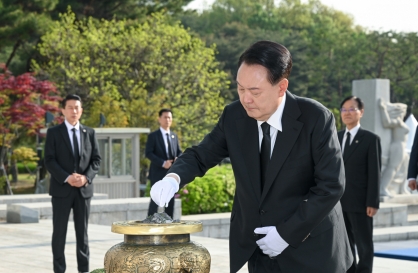
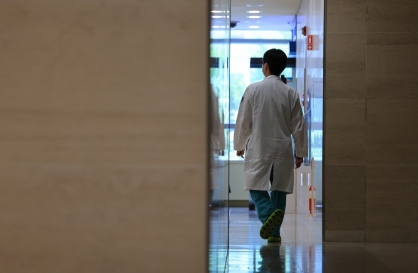
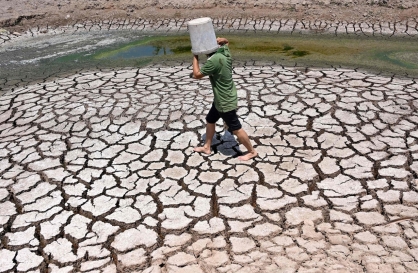

![[KH Explains] Hyundai's full hybrid edge to pay off amid slow transition to pure EVs](http://res.heraldm.com/phpwas/restmb_idxmake.php?idx=644&simg=/content/image/2024/04/18/20240418050645_0.jpg)
